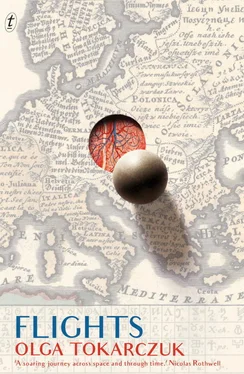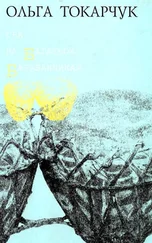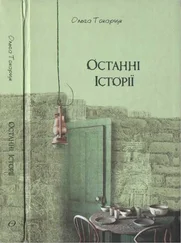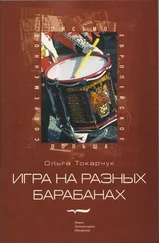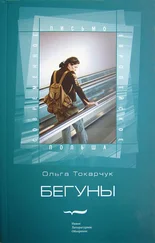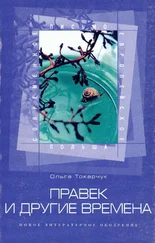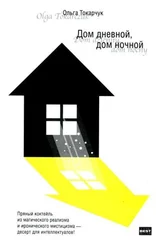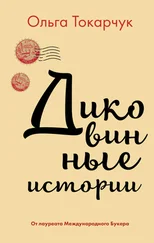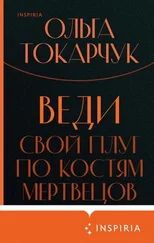Now Ludwika, freezing and exhausted, is driving off in a stagecoach. She’s nearing Leipzig. It’s a wet winter, and heavy clouds with black bellies are coming up on them from the west; it will most likely snow. Many months have passed since the funeral, but yet another funeral, in Poland, awaits Ludwika now. Fryderyk Chopin had always said he wanted to be buried in his native land, and because he knew perfectly well that he was dying, he had planned his death quite carefully. And his funerals, too.
No sooner had he died than Solange’s husband had arrived. He arrived so promptly it was as if he had been waiting in his overcoat and his boots for a knock on his door. He appeared with all his equipment in a leather bag. First he coated the lifeless hand of the deceased in fat, placed it deliberately and respectfully upon a small wooden trough, and poured plaster over it. Then with Ludwika’s help, he made a death mask – they had to do it before the lines of his face had stiffened unduly, before death had intervened in them, for death renders all faces similar.
Quietly, with no fuss, Fryderyk Chopin’s next wish was fulfilled. The second day after his death a doctor recommended by Countess Potocka asked that the body be undressed to the waist and then, having lain an armful of sheets around the body’s bare rib cage, opened it with his scalpel in a single swift movement. Ludwika, who was there for this, felt that the body had trembled, and had even let out a sort of sigh. Later, when the sheets were almost black with blood clots, she turned to face the wall.
The doctor rinsed the heart in a basin, and Ludwika was surprised at how big, shapeless, colourless it was. It barely fit into the jar filled with alcohol, so the doctor advised they get a bigger one. The muscular tissue must not be compressed nor touch the walls of the jar.
Ludwika dozes off now, rocked by the regular clatter of the carriage, and in the seat opposite her, next to her travelling companion, Aniela, a lady appears, someone she doesn’t know, but someone she might have known a long time ago, back in Poland, wearing a dusty mourning dress like the widows of the 1830 uprisings, with an ostentatious cross on her breast. Her face is swollen, made ashen by Siberian frosts; her hands, in worn-out grey gloves, keep the jar. Ludwika awakes with a moan and checks the contents of her basket. Everything is fine. She pushes her hat back up; it had slid down onto her forehead. She curses in French: her neck is so stiff. Aniela wakes up, too, and draws the shades. The flat winter landscape is strikingly sad. In the distance there are some hamlets, human settlements bathed in a wet grey. Ludwika imagines herself crawling along a large table, like an insect under the attentive gaze of some monstrous entomologist. She shudders and asks Aniela for an apple.
‘Where are we?’ she asks, looking out the window.
‘We have a few hours left,’ says Aniela soothingly. She hands her companion one of last year’s wrinkled apples.
The funeral was supposed to take place at La Madeleine. They had already arranged the mass, but in the meantime the body was displayed in the Place Vendôme, where hordes of friends and acquaintances kept coming to pay their respects. Despite the covered windows, the sun kept trying to sneak in to play with the warm colours of the autumn flowers: purple asters, honey-toned chrysanthemum. Inside the candles had exclusive sovereignty, giving the impression that the colour of the flowers was profound and succulent, and the face of the deceased not so pale as in daylight.
As it turned out, it was going to be difficult to fulfil Fryderyk’s wish that Mozart’s Requiem be played at his funeral. His friends had managed, through their numerous contacts, to assemble the finest musicians and singers, including the best bass singer in Europe, Luigi Lablache – an amusing Italian who could impersonate whomever he wished in a manner found impressive by all. And in fact, on one of the evenings when everyone was awaiting the funeral, he had done such a perfect impersonation of Chopin that the whole company had roared with laughter, not really knowing if they ought to – for the deceased was not yet even underground. But in the end someone said that after all it was really a proof of love and remembrance. And that in that way he would remain with the living for longer. Everyone remembered how Fryderyk could so proficiently and maliciously parody others. One thing was certain: he had been a man of many talents.
In essence, everything got complicated. Women weren’t allowed to perform solos – or even to perform in the choir – at La Madeleine. Such was their age-old tradition: no women. Only men’s voices, at the most the voices of eunuchs (to the Church even a man with no balls is better than a woman, as the situation was summarized by the woman in charge of the sopranos, an Italian singer, Miss Graziella Panini), where were they going to find eunuchs in that day and age, in 1849? How could they sing ‘Tuba mirum’, then, without the soprano and alto parts? The parish priest at La Madeleine told them that the rules could not be changed, not even for Chopin.
‘How long are we supposed to keep the body? Are we going to have to turn, for the love of God, to Rome for an answer?’ cried Ludwika, who had been driven to despair.
Because October was quite warm that year, the body was transferred to a chilly morgue. It was overlain with flowers, and it was practically invisible underneath them. It lay in semi-darkness, slight, gaunt, heartless; a snow-white shirt concealed the set of not particularly painstaking stitches with which the ribcage had been resealed.
In the meantime the rehearsals continued for Requiem , as well-placed friends of the deceased negotiated delicately with the parish priest. In the end it was decided that the women, the soloists as well as the members of the choir, would stand behind a heavy black curtain, invisible to churchgoers. Only Graziella complained, no one else, but in the end it was decided that in this particular situation such a resolution was still better than none.
While waiting for the funeral, Fryderyk’s close friends came every evening to his sister’s or to George Sand’s to remember him. They would dine together and exchange the latest society gossip. Those days were strangely peaceful, as though not belonging to the ordinary calendar.
Graziella, petite and dark-complexioned, with a tempest of curly hair, was a friend of Delfina Potocka, and both women had come to visit Ludwika on several occasions. Graziella, sipping liqueur, mocked the baritone and the conductor but was quite happy to speak about herself. As artists always are. She limped with one leg because she had been mauled the previous year in Vienna during the street fighting. The crowd had overturned her carriage, no doubt in the conviction that it contained some wealthy aristocrat rather than an actress. Graziella had a weakness for pricy carriages and an elegant toilette, probably because she came from a family of cobblers in Lombardy.
‘Can an actress not travel in a sumptuous carriage? Is it wrong, when one has attained successes, to allow oneself a little pleasure?’ she said in her Italian accent, which made it sound like she was stuttering slightly.
Graziella’s misfortune had been to find herself in the wrong place at the wrong time. The crowd, with its revolutionary inclinations, not daring to attack the Emperor’s palace which was surrounded by guards, began to ransack his collections. Graziella watched them drag out everything that could be equated, in the mind of the people, with aristocratic decadence, luxury, and cruelty. The raving crowd threw armchairs out of windows, ripped apart canapés, tore the high-priced panelling off the walls. With a crash they broke the beautiful crystal mirrors. They destroyed, too, the glass cases containing archeological treasures. Hurling fossils out onto the pavement, they shattered the windowpanes. In no time they had plundered the semi-precious stones; they then took to the skeletons and the stuffed animals. Some sort of spokesman of the people called for all the stuffed humans and other mummies to be given a proper Christian funeral, or at the very least for these proofs of the authorities’ usurpation of the human body to be destroyed. A great pyre was built; they burned everything they came across.
Читать дальше
